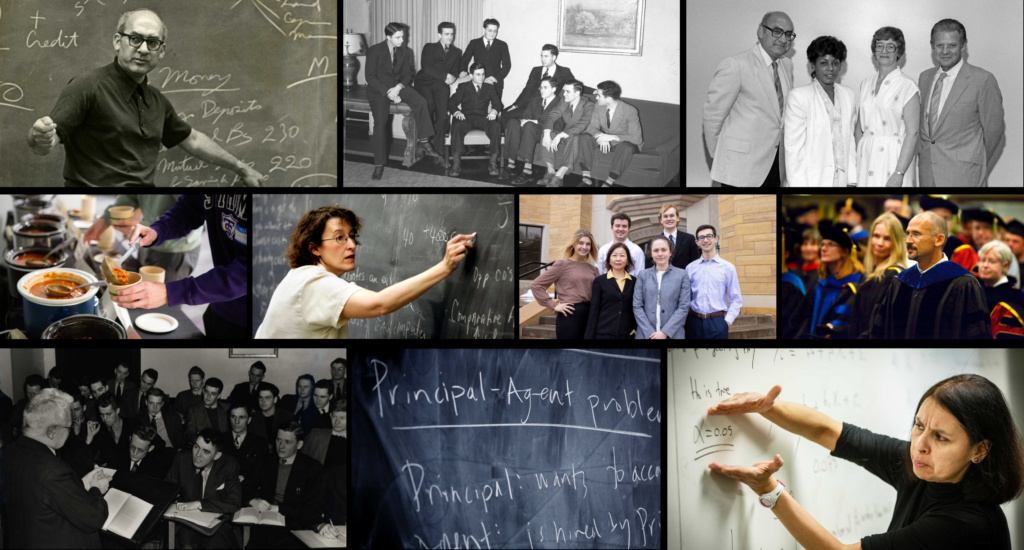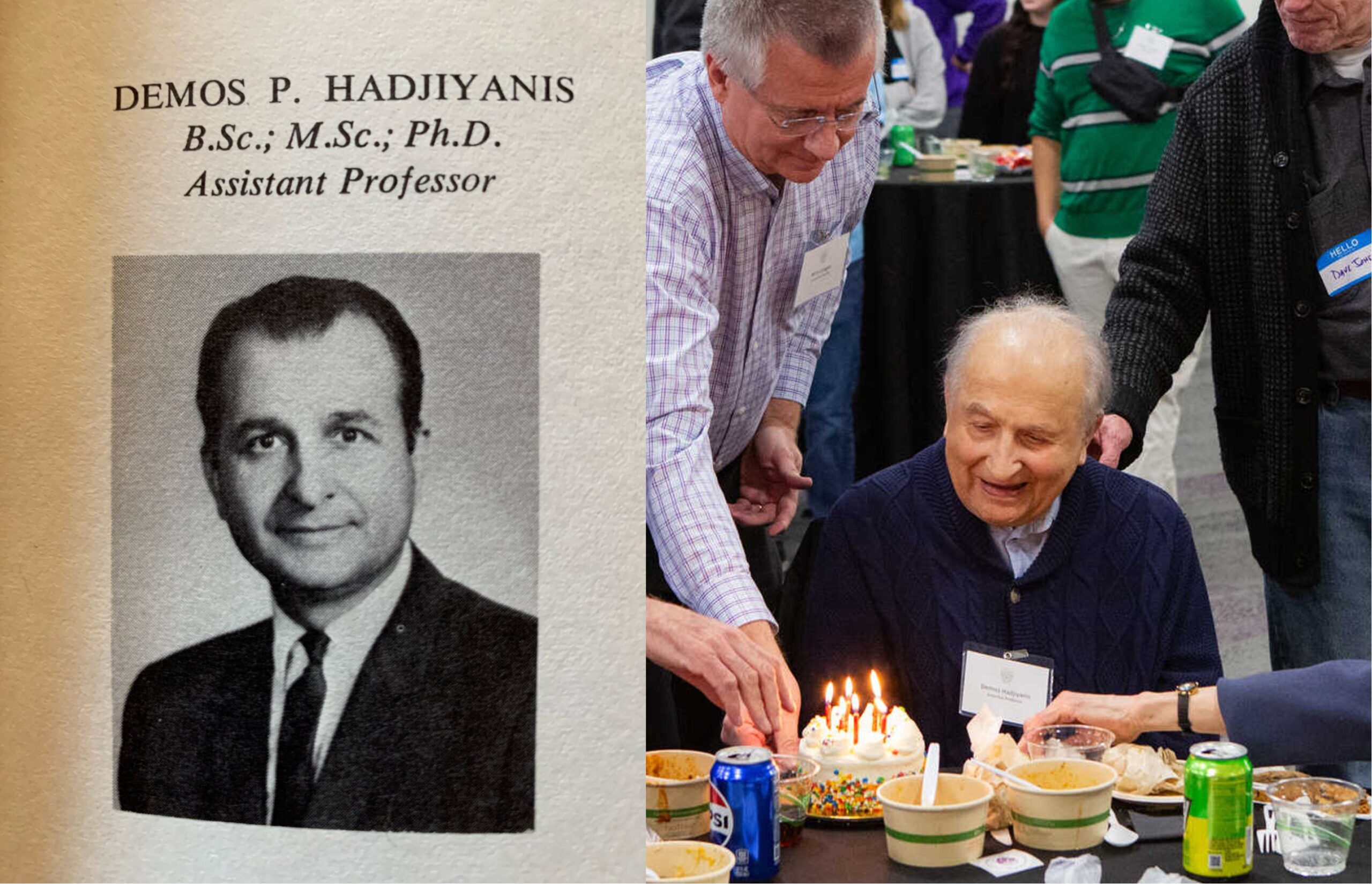100 years is an achievement worth celebrating, and a University of St. Thomas professor is marking the occasion right alongside his beloved Department of Economics.
Professor Emeritus Demos Hadjiyanis, who retired from his full-time position in 1990, turned 100 on Dec. 1, 2023. The milestone birthday came as the Department of Economics celebrated its own 100th graduating class.

Hadjiyanis played a vital role in his department’s century of impact. With an overflowing love of education, affinity for formal dress (he’s rarely spotted wearing anything less than a combo including full shirt, tie and vest), and expertise in international economics, he left an impression on students, staff, and fellow faculty for 25 years.
“I embraced St. Thomas and St. Thomas embraced me,” Hadjiyanis said.
The Cyprus native journeyed to America in 1949 with the hope of attending college in the U.S. – he certainly accomplished that dream, earning degrees at Oklahoma State University (then called Oklahoma Agricultural and Mechanical), Ohio University and the University of Minnesota. After a brief teaching stint at St. Olaf College in Northfield, Minnesota, he joined the Department of Economics at the University of St. Thomas, a department that was just three faculty strong in 1965.
For decades he would spread his love of economics and the value of a liberal arts education to any student who would listen.
“An education is the lightest thing you can carry on your back. You can take it anywhere,” Hadjiyanis said. “The more education you get the more tolerant you are, the more adept you are at contributing to a conversation.”

Current economics faculty member Agapitos Papagapitos, who is a native of Greece, was hired within a year of Hadjiyanis retiring. While the two only worked together at St. Thomas for a short time, they quickly bonded over a common language and love of teaching.
“He was a very down-to-earth guy, and a very, very generous person,” Papagapitos said. “He was also a sort of old-fashioned faculty member, and I mean that in the best of ways, always dressing formally and always ready to provide advice, and I think the students loved him for that.”
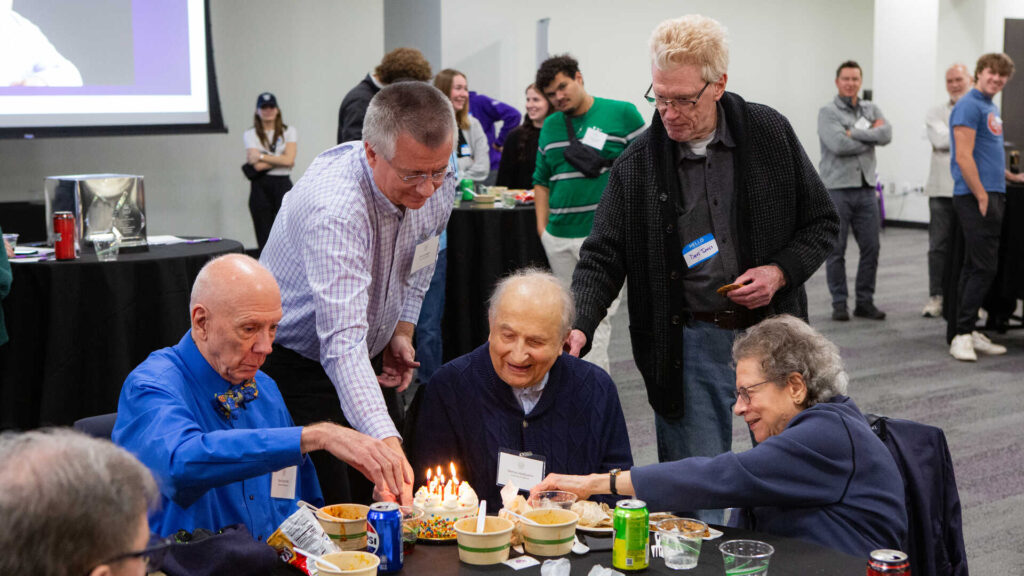
Hadjiyanis and his wife, Eugenia, live in St. Louis Park, and still enjoy visiting the St. Thomas campus when they can. They attended the department’s annual Chili Fest this fall ahead of his 100th birthday – where he was honored with his very own birthday cake. Meeting with students again was a joy for Hadjiyanis, who couldn’t resist offering another round of sage advice.
“I love their determination to learn,” Hadjiyanis said. “It was always a blessing to share in those moments, to be a teacher and play a part in a student’s education. To connect with students was one of my biggest blessings at St. Thomas.”
Pillars of the department
The Department of Economics owes its success today to dedicated and beloved faculty like Hadjiyanis. Below, learn about three additional individuals who contributed to the longevity and strength of the department.

Two influential early members of the Economics Department were Theodor Brauer and Franz Mueller – both refugees from Nazi oppression. Brauer was a leading Catholic social philosopher in Germany between the First and Second World Wars. Active in the Christian Trade Union movement, he was fired from his position as director of the Institute for Research in the Social Sciences at the University of Cologne in 1934 and was jailed for a brief time by the German government. Father Lambert Hoffman learned of Bauer’s plight and brought it to the attention of Archbishop John Gregory Murray of the Archdiocese of Saint Paul/Minneapolis. In 1937, Murray contacted Brauer and invited him to teach economics at the College of St. Thomas. Brauer accepted the invitation and continued as a prolific scholar and teacher until his death in 1942.
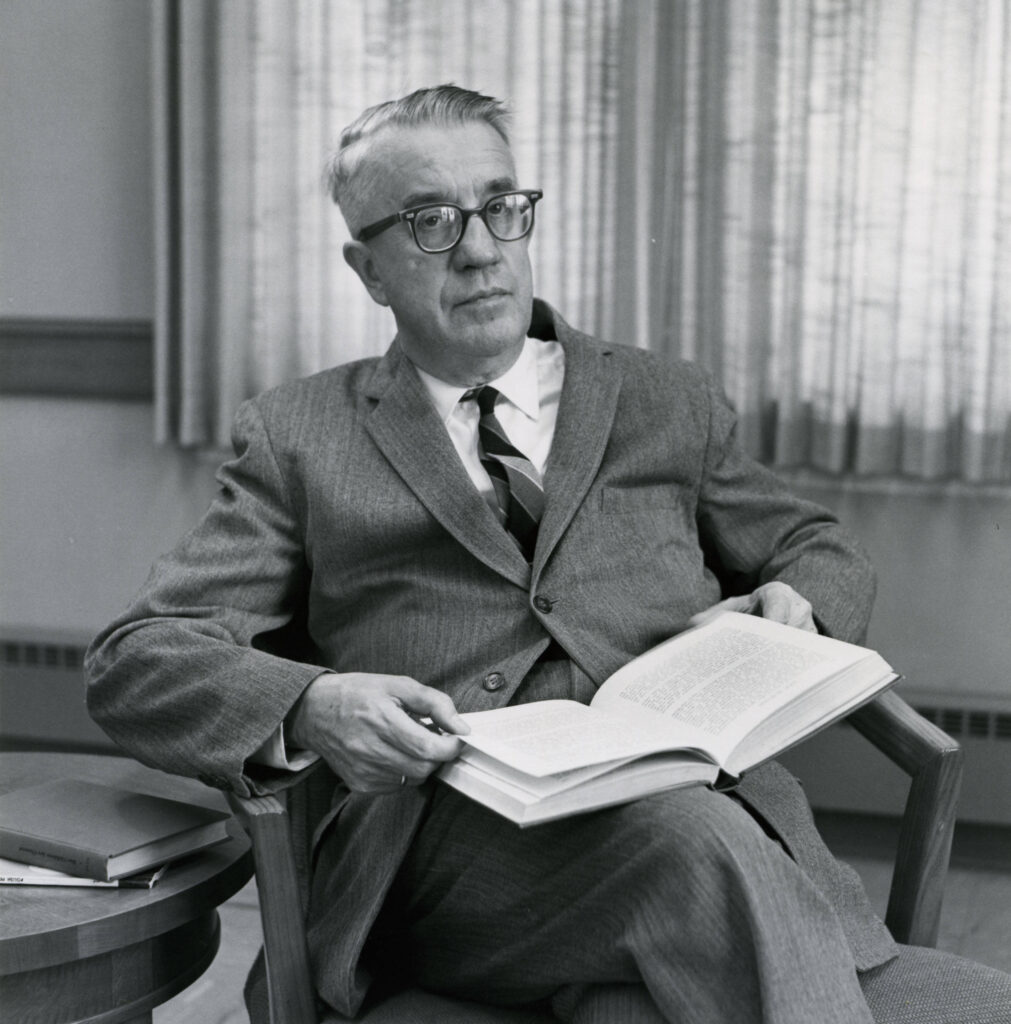
In 1940, Brauer persuaded St. Thomas President Monsignor James Moynihan to recruit Franz Mueller to join him in the St. Thomas Economics Department. In addition to working as Brauer’s assistant for many years, Mueller had been a member of the Konigswinter Study Circle which completed the preparatory work for the encyclical Quaragesiomo Anno issued by Pope Pius XI. Like Brauer, Mueller was dismissed from his position at the Institute for Research in the Social Sciences in 1934 by the Nazi regime. Mueller served as the Economics Department chair for 20 years before retiring from teaching in 1968. But he continued to be a fixture on the St. Thomas campus as he continued to pursue scholarly research in Catholic social and economic thought until his death in 1994.
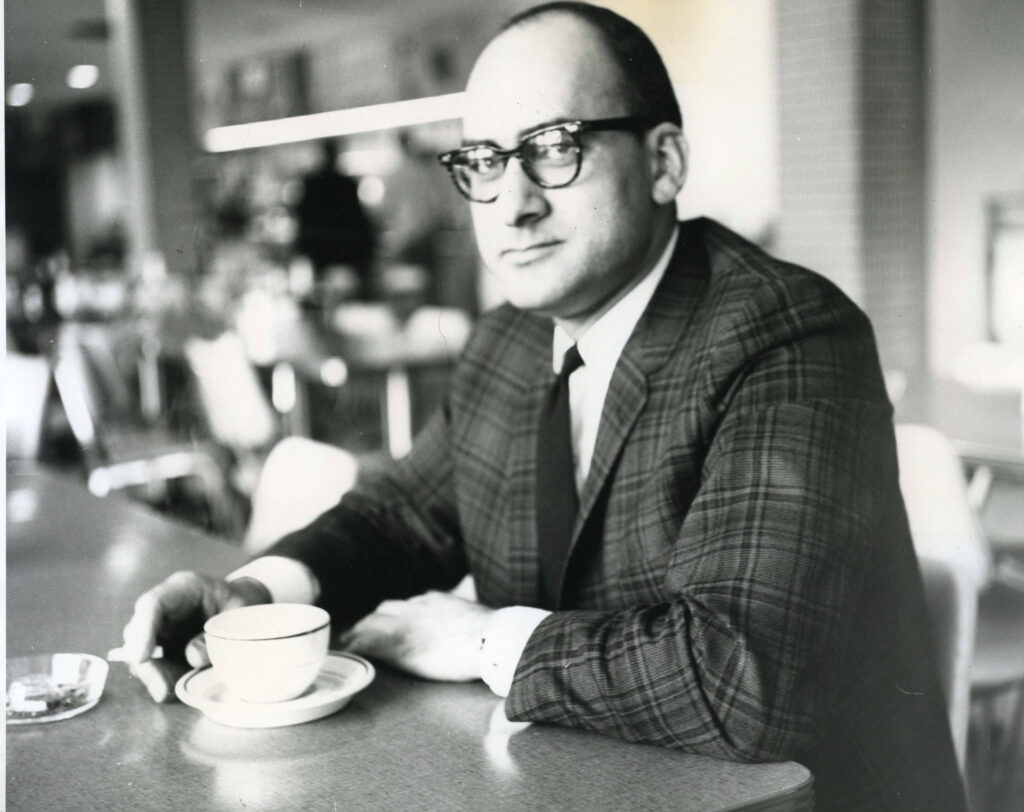
Another influential member of the Economics Department was Mohamed Selim. A native of Egypt, Selim received his doctorate in economics from the University of Minnesota. He joined the St. Thomas economics faculty in 1959 and over the next four decades, he served as department chair, organized the Center for Economic Education, and founded the Center for Senior Citizens’ Education.
At the time of his retirement in 2004, Selim’s 45 years of service was the longest of any lay St. Thomas faculty member in history. He was named St. Thomas’ Professor of the Year in 1978 and received the university’s Distinguished Service Award upon his retirement. In 2011, the Center for Senior Citizens’ Education, which he directed for 31 years, was renamed The Selim Center for Learning in Later Years. It’s now called the Selim Center for Lifelong Learning.
Related Content
